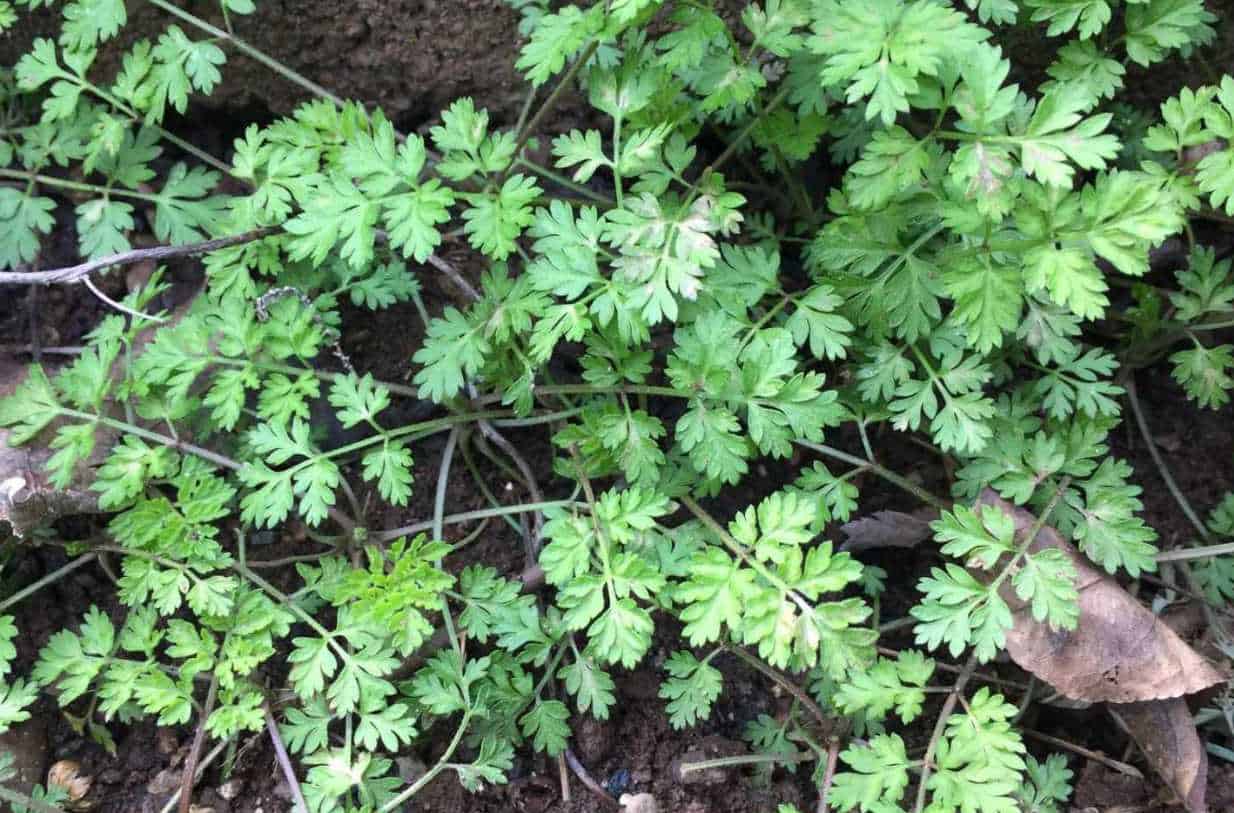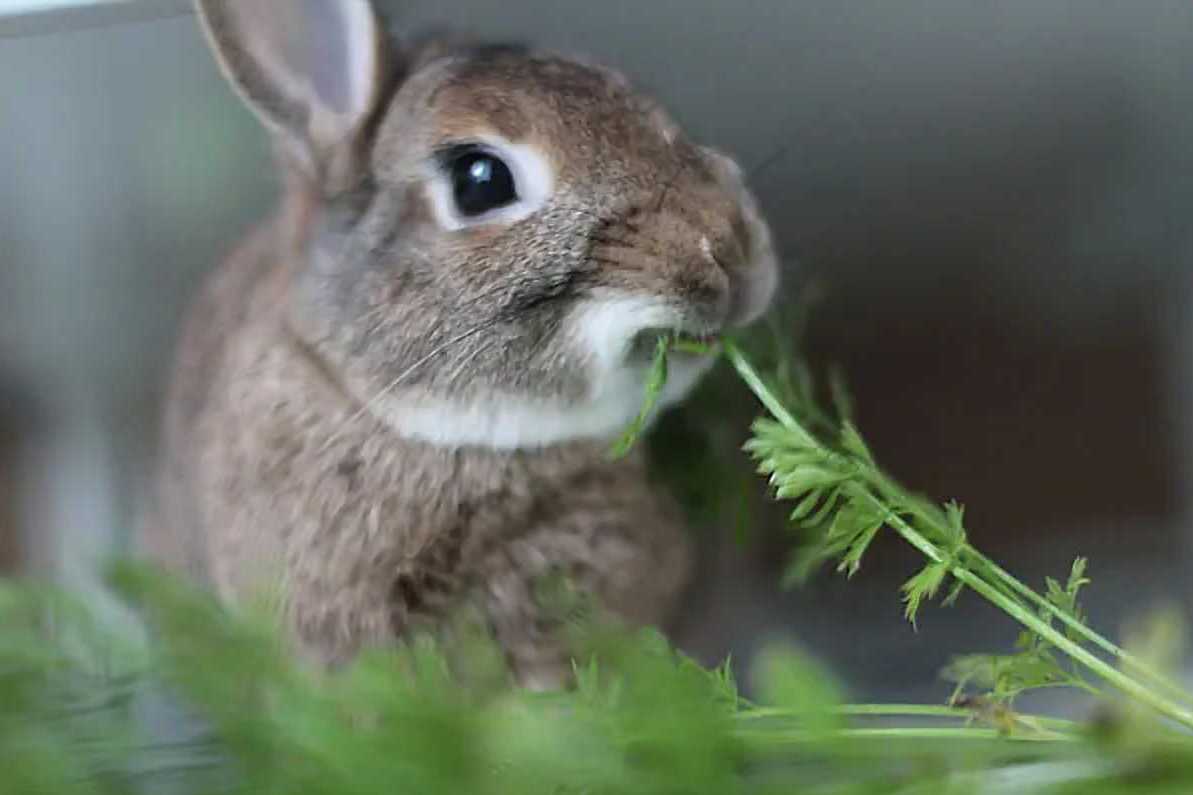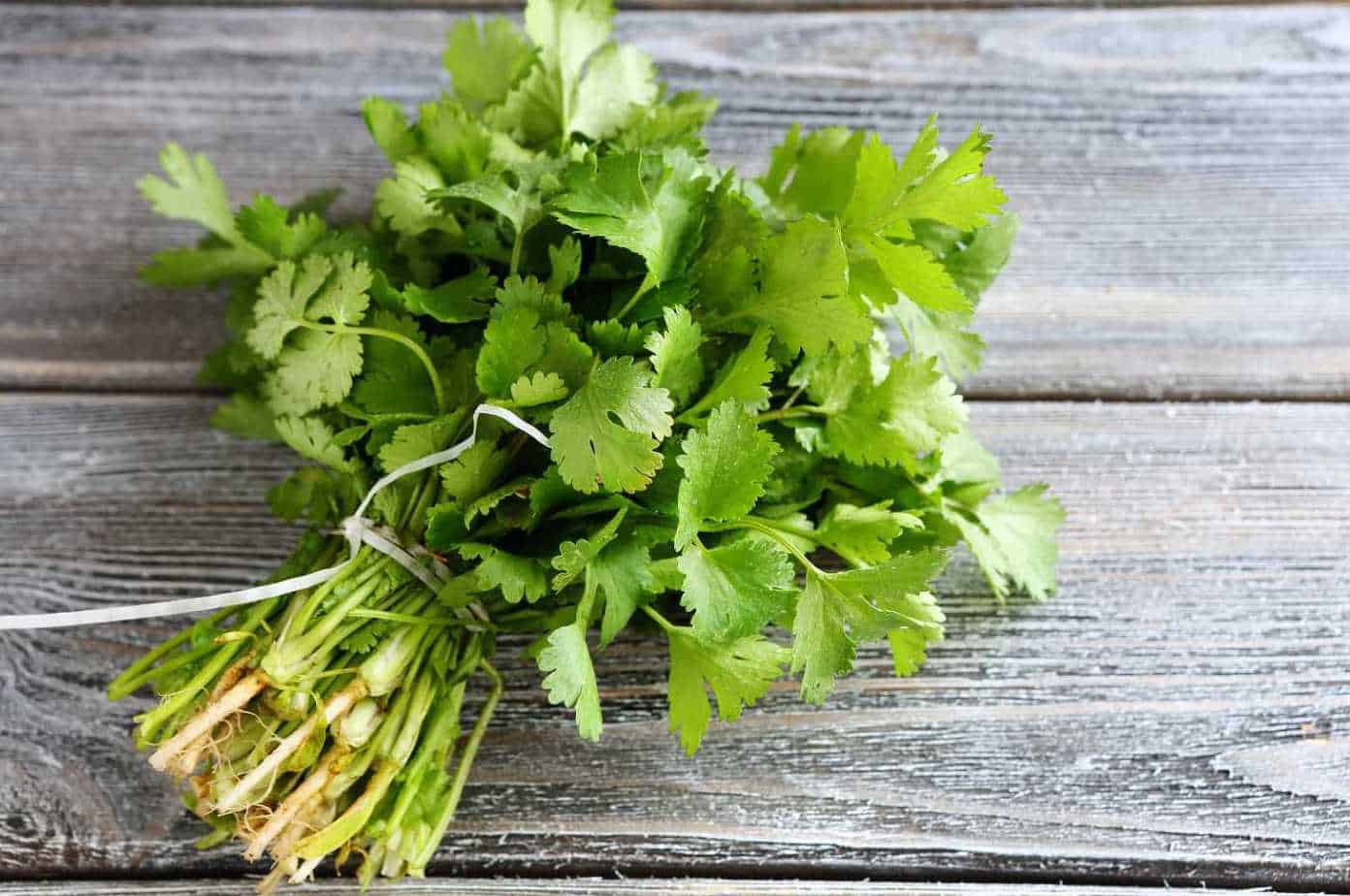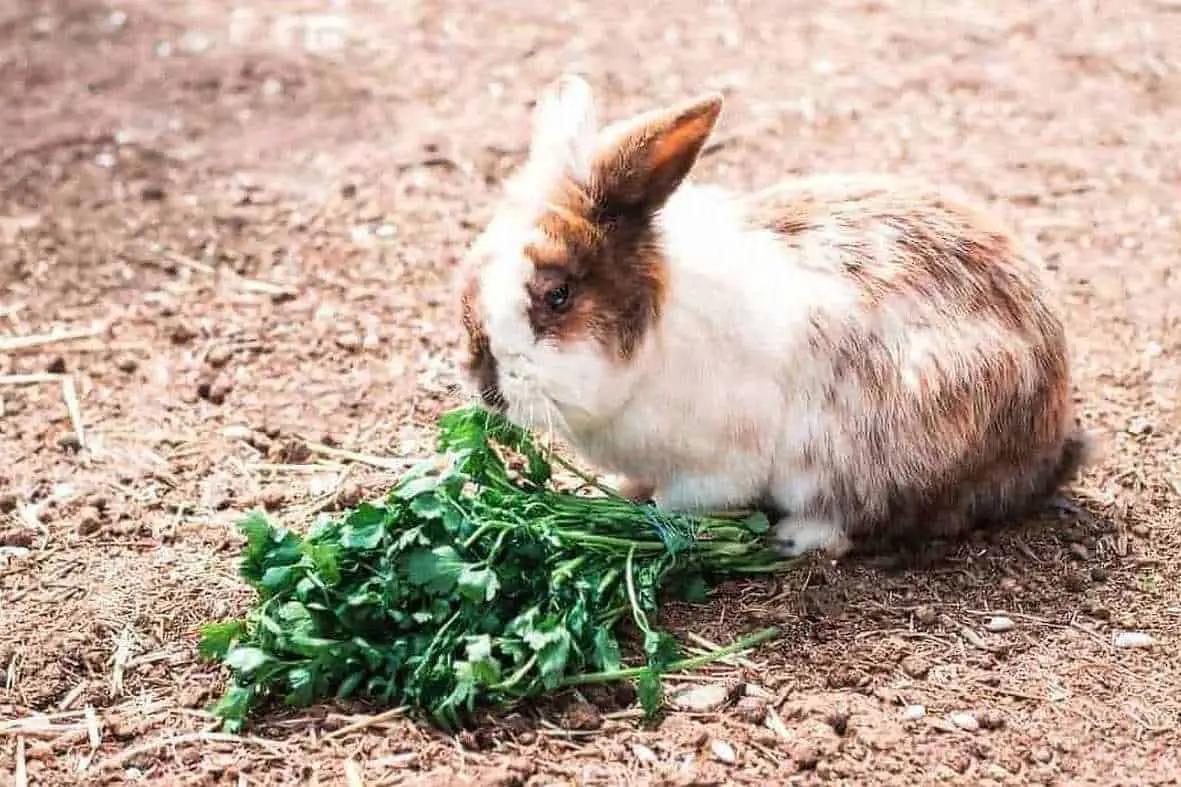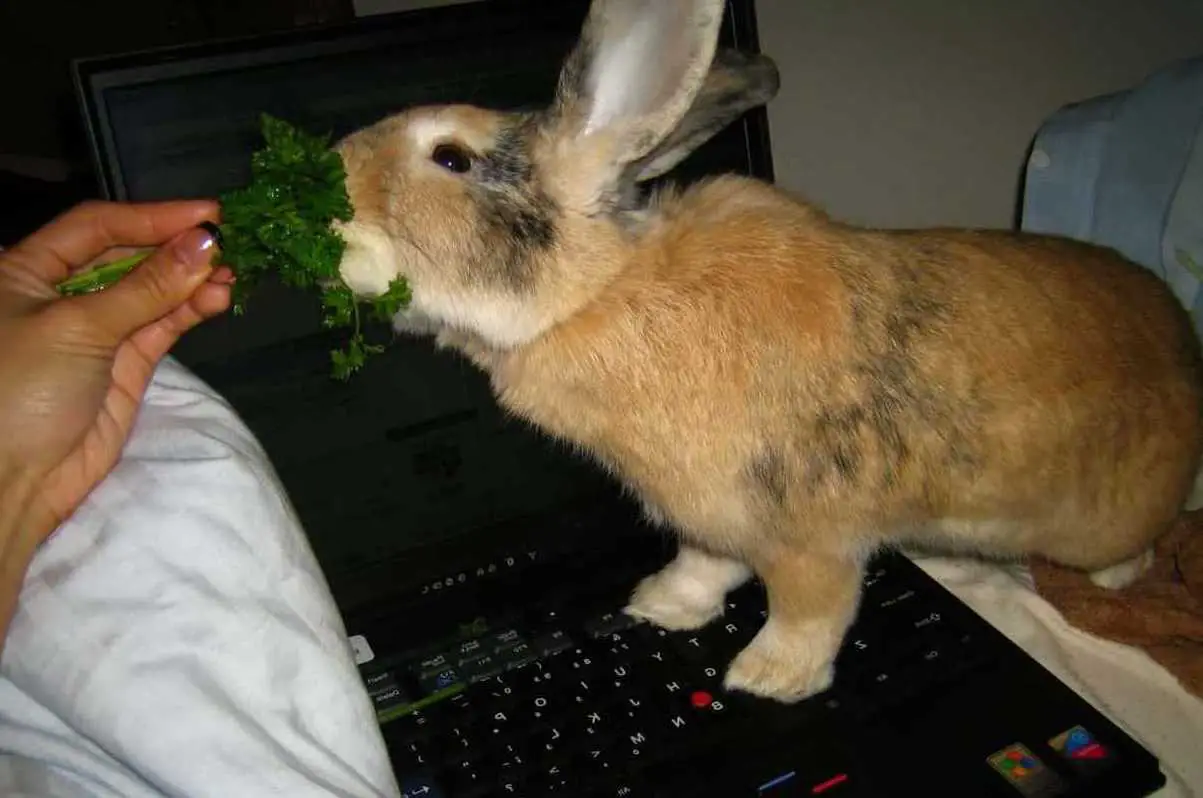Leafy greens provide natural nutrients to complement a rabbit’s daily diet. Their high roughage content makes them an excellent addition to hay. They offer essential vitamins and minerals.
However, feeding them the wrong veggies can cause serious health issues. The question is, “Can rabbits eat parsley? What should rabbit keepers do?
What is parsley?
Parsley is a flowering Mediterranean herb packed with nutrients. It has been prized in Europe for its sharp fragrant flavor for centuries. It’s also high in antioxidants, which may help prevent cancer and heart disease.
The table below shows some quick facts about parsley:
| Family | Apiaceae |
| Scientific name | Petroselinum crispum |
| Other names | Garden parsley, parsley breakstone, petersylinge |
| Origin | Mediterranean |
| Countries commonly found | Spain, Italy, Belgium, China, |
| Average weight | 55 grams |
| Preferred climate | Temperate |
Parsley is utilized for garnishing around the world. The leaves are bright green, and the stalks are upright. Its taste depends on weather conditions and the type of soil.
The parsley plant’s seeds, roots, and leaves are applied for medicinal purposes. Some also use it in the cosmetic industry in making soaps and lotions.
How long does parsley live? It’s a biennial herb. This implies that it has a two-year life cycle. It grows best in regions with partial shade and mineral-rich soil.
Is parsley safe for rabbits?
Parsley is a favorite food of most rabbits. They like parsley’s taste and feel. However, you should not feed them in large quantities even if they like it. Overfeeding bunnies with veggies, such as parsley, can make them weak and sickly.
Rabbits can safely eat parsley. Any leafy greens that are healthy to eat for humans are also safe for rabbits.
Rabbits can consume parsley as long as they’re over 12 weeks old and are getting enough hay. However, do not feed parsley to your bunny if it’s too young, or if it eats more parsley instead of hay.
You can offer parsley the same way as basil, mint, and cilantro. However, bunnies may neglect these herbs due to their strong aromatic odor.
Always wash your parsley before feeding it to rabbits. This is to remove any toxins present due to the use of pesticides during the plant’s growth.
You may give parsley to your rabbits as a reward. You can combine parsley root with some non-leafy vegetables such as zucchini and cucumbers. Make sure not to go beyond the correct amount of veggies for bunnies.
Rabbits’ tolerance for different foods varies over time. They should also eat everything moderately like humans.
Include a variety of plants, not only parsley, in their diet. They’re commonly available in any supermarket. Your rabbit will live a long and healthy life as long as you practice moderation!
However, parsley has a high calcium component. It is generally not a great choice if your bunny has a record of urinary issues like sludge or kidney stones. Try other greens with low calcium concentration.
Parsley is primarily water. Even if it is rich in calcium, your bunny can only get a relatively low amount. Rabbits excrete extra calcium when they urinate. They discharge any excess calcium if their kidneys are in good shape.
Consult your veterinarian if you’re not sure whether you should give your rabbit parsley or not. He is familiar with your pet’s medical history and can give you an accurate answer.
Types of Parsley Rabbits Can Eat
There are four types of parsley. Each one is healthy, tasty, and aromatic. Each also has a different culinary application.Rabbits can eat any of the varieties. The parsley plant or its leaves contain no harmful components.
However, it is preferable to feed your rabbits organic parsley. They contain fewer fertilizers and chemicals.
Flat Leaf Parsley
This parsley features the flattest, greenest, and broadest leaves of all the parsley varieties. It ranges in color from dark to light green. It can grow up to a height of 24-36 inches in a fluffy form. It is tastier than other varieties.
Curly Parsley
This is the most often used variety. It can be used in cooking as well as a garnish. It has a milder flavor than flat-leaf variants, but it doesn’t make it any less tasty. It is also versatile and grows easily.
You can identify curly parsley obviously by its frizzy, ruffled leaves. These leaves are smooth, shiny green, and arranged into pairs.
The seeds of this variety are challenging to grow, so start with seedlings. This type of parsley is less fussy, but it still has to be kept moist.
Hamburg Parsley
The roots of the Hamburg parsley are thick and resemble parsnips. They give texture and taste to stews and soups. The leaves are attractive and look like ferns.
This parsley also resembles the flat-leaf variety. However, its leaves are merely decorative because the flavor is too strong for most people. This has long tubers that are whitish. It can reach a height of up to 8 inches.
Japanese Parsley
This parsley is an evergreen plant that originated in Asia, particularly China and Japan. It’s cultivated as a veggie and eaten similarly to celery. However, it has a bitter taste.
This parsley has three sets of green, pointed leaves that grow on tall stems. It can grow both indoors and outdoors, as well as in containers. The entire plant is palatable, from the leaves to the roots.
How often can rabbits eat parsley?
Parsley is an excellent herb for your rabbit if you offer it according to guidelines. Keep in mind that you should always give it in moderation. You can also combine it with other veggies and leafy greens.
One cup of mixed veggies will suffice for a bunny weighing 2 pounds. You may add parsley to your pet’s food only a few times every week.
Your bunny can eat a small amount of parsley every day once it’s accustomed to it. The only exception is when you also feed other calcium-rich meals.
Note that variety is essential. Provide your rabbit with a choice of natural treats so they benefit from the best diet.
How much parsley can rabbits eat?
The following table shows how much parsley can you feed your bunny according to age:
| Age | Amount |
| Baby rabbits | 0 |
| Juvenile rabbits | 0 |
| Adult rabbits | 2 stems with leaves |
You can give your bunny an entire serving if it’s already consuming fresh foods. However, start with one stem if this is your first time giving them a fresh treat.
Keep an eye out for symptoms of stomach discomfort, diarrhea, or bloating in the next few hours. Parsley is unlikely to create any issues. But it’s crucial to stay alert for difficulty whenever you introduce something new to your bunny.
You can keep feeding your rabbit parsley as long as all goes well. It’s rich in fiber and delicious. Your rabbit will most likely enjoy it.
5 Health Benefits of Parsley for Rabbits
Contains Essential Nutrients
Parsley is frequently overlooked or used as a garnish. But it is packed with vitamins and minerals that are beneficial to your rabbit.
100 grams of parsley can provide the following nutrients:
| Nutrients | Amount |
| Carbohydrates | 6.33 grams |
| Fiber | 3.3 grams |
| Sugars | 0.85 grams |
| Protein | 2.97 grams |
| Fat | 0.79 grams |
Furthermore, parsley leaves are high in vitamin A, C, and K. It’s also abundant in iron, folate, magnesium, and zinc.
High in Antioxidants
Parsley is high in antioxidants, which are good for your bunny’s health. Antioxidants are chemicals that keep free radicals from causing cellular harm. Your rabbit needs a healthy mix of free radicals and antioxidants to stay healthy.
Parsley’s primary antioxidants include vitamin C, flavonoids, and carotenoids. Vitamin C has powerful antioxidant properties. It is vital for immunological function and chronic disease prevention.
Parsley is also high in flavonoids. Apigenin and myricetin are the two major flavonoids. They reduce the risk of illnesses like cancer, diabetes, and heart disease.
Furthermore, carotenoids such as lutein and beta carotene are antioxidants. They also help lower the risk of illnesses like lung cancer.
Builds Stronger Bones
Vitamin K is abundant in parsley. This vitamin is an important component for the health of your bunny’s bones.
Vitamin K helps to strengthen bones by supporting bone-building cells. This vitamin also activates proteins that boost minerals in bones. It may also help minimize fracture risk.
Protects Eyes
Carotenoids found in parsley help protect your bunny’s eyes and maintain healthy eyesight. They also help avoid age-related macular degeneration (AMD), an incurable eye disease.
Another carotenoid that promotes eye health is beta carotene. This carotenoid can turn to vitamin A.
Vitamin A protects the cornea, which is the outer layer of the eye. It also safeguards the conjunctiva, the membrane that covers the front and inside of the eyelids.
Improves Heart Health
Parsley is a nutrient-dense herb that helps with heart health. It’s a good source of B vitamin folate. Folate protects your bunny’s heart. It may also lessen the risk of heart disease.
Summary
Can rabbits eat parsley? Yes, most rabbits benefit from parsley. They like the taste as well. However, it’s not ideal for rabbits with kidney issues. Parley is high in antioxidants and minerals.
It can help boost your rabbit’s vision, immune system, and overall organ performance. Make sure you stick to the recommended amount.
